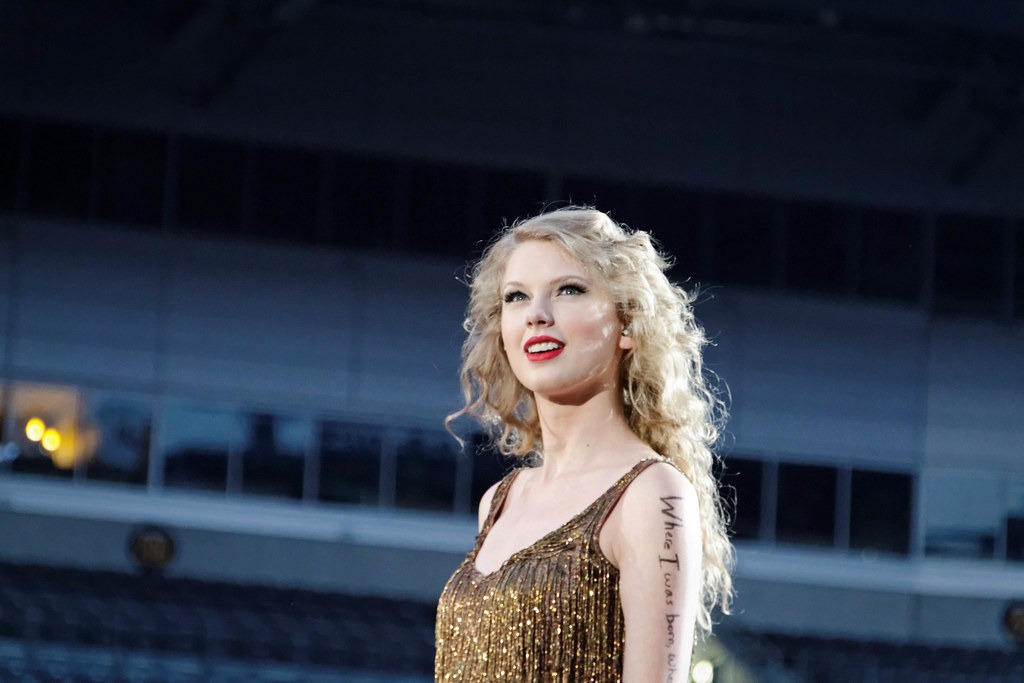Should artists be doing more with their platform?
Taylor Swift recently donated $100,000 to the GoFundMe of a two-year-old girl battling stage four brain cancer, alongside a message: “sending the biggest hug to my friend, Lilah.” The singer donated the money after Lilah’s mother, Katelynn Smoot, posted a TikTok video showing Lilah dancing to Swift’s music as part of her documentation of her daughter’s battle with a rare form of brain cancer, atypical teratoid rhabdoid tumour, which affects only 58 people per year.
Swift’s donation has had an extensive impact, encouraging other fans to donate to the page, which has raised $352,199 as of 28 October 2025. Messages accompanying the donations often include references to Swift’s lyrics, showing the far-reaching impact of her platform. Smoot said: “The Swiftie community is absolutely amazing … The financial burden has been completely lifted off my family, and I am so thankful and so grateful.”
Her net worth is around four times the annual income of Oxfam
Taylor Swift has an extensive history of charitable donations, for example, donating $100,000 to the family of a woman killed during the Kansas City Chiefs Super Bowl parade mass shooting, $30,000 to a British teen hoping to attend university in 2020, and $1 million to Tennessee tornado relief in 2023. She also ensured her Eras Tour had a positive social impact, donating money to causes in the countries she visited, including donating to 1,400 food banks in the UK.
However, as Swift has a net worth of $1.6 billion as of June 2025, her recent donations have led to questions over the role of artists with regard to philanthropy and whether musicians like Swift have a responsibility to do more with their huge wealth and platform. Her net worth is around four times the annual income of Oxfam, a charity which helps around 9 million people each year, highlighting the potential far-reaching impact of her wealth if she donated it to an organisation such as Oxfam and encourage others to do the same, as she did for Lilah.
Artists are increasingly becoming part of political discourse, using their platforms to support or criticise politicians and their objectives
Other artists are also heavily involved in charitable endeavours in sectors addressing poverty, education, healthcare, and humanitarian relief. Beyoncé’s charity BeyGOOD for example supports education, housing and disaster relief efforts, including most recently raising money to support victims of the LA fires.
Social media has given artists a bigger platform, which expands their ability to advocate for the social and political causes that concern them and foster community engagement with these causes. Artists are increasingly becoming part of political discourse, using their platforms to support or criticise politicians and their objectives. Swift is a notable example of this, famously endorsing Kamala Harris in the 2024 US Presidential Elections, and condemning Trump back in 2018.
However, she has come under criticism for remaining silent on issues such as Palestine. Conversely, many artists have used their platform to criticise the Israeli government for their actions in Gaza and raise money for humanitarian aid. For example, the Together for Palestine concert held at Wembley in September 2025, involved musicians such as Paloma Faith, Bastille, Cat Burns, and PinkPantheress, raising over £1.6 million.
“Swift’s carbon emissions are extreme and are polluting the atmosphere”
Leah Thomas
Sustainability has also become an important topic of debate. Swift was criticised for her environmental impact during the Eras Tour. It is estimated that her private jet travel for the 2024 leg of her Eras Tour emitted over 511,000kg of carbon dioxide (equivalent to the annual emissions of 122 gas-powered cars), excluding freight transport and fans’ travel to shows. Leah Thomas, author of The Intersectional Environmentalist, has stated that: “Swift’s carbon emissions are extreme and are polluting the atmosphere.” Her team has purchased carbon credits equivalent to twice the emissions of her private jet, to support carbon offset projects; however, her environmental impact is clearly damaging, and the efficacy of carbon offsets is debated. Conversely, other artists such as Coldplay have placed an increased focus on sustainability, with their Music of the Spheres tour reducing their carbon dioxide emissions by 59% compared to their previous world tour.
In a society which increasingly prioritises activism, social justice and sustainability, artists are forced to adapt and become more conscious of these issues to avoid criticism from fans who expect them to use their platform in a responsible way. Public figures such as musicians are held to a higher standard, as, despite it not being their explicit job, the money they receive from songwriting and touring provides a level of privilege that many aren’t accustomed to. Therefore, artists, and indeed everyone who has a public platform, have a responsibility to use this privilege to make choices that the majority cannot make, by donating their wealth to charities, raising awareness of important causes and social justice movements and making changes to reduce their environmental impact.

Comments